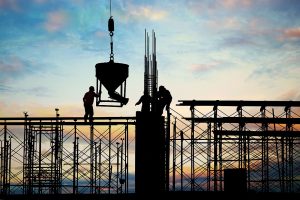THE PHILIPPINES and United Arab Emirates (UAE) signed an investment promotion and protection agreement (IPPA) on June 9, with the Trade department expressing an interest in tapping Dubai investment in agriculture and energy, among others.
In a statement on Sunday, the Department of Trade and Industry (DTI) said Trade Secretary Ramon M. Lopez and UAE Minister of State for Financial Affairs Mohamed Bin Hadi Al Hussaini signed the IPPA, which it said is expected to create 2,500 jobs and over P7.1 billion worth of investment.
“The parties intend to promptly facilitate the internal procedures needed for the entry into force of the IPPA. Sectors of interest from the UAE include import and distribution, the manufacture of scaffolding and formwork, engineering services, defense, telecommunications, tourism, poultry, aerospace, retail (such as medical equipment/devices), and renewable energy,” the DTI said.
The DTI said it is eyeing investment in agribusiness and agriculture, energy efficiency technology and renewable energy, infrastructure and public–private partnership projects, artificial intelligence, information technology and business process management and shared services, manufacturing, oil and gas, processed and specialty food, and tourism and hospitality.
Philippine products the DTI expects to promote to the UAE are plastic and rubber products such as gloves, vulcanized rubber, and vulcanized rubber thread and cord, and spices such as cloves and pepper.
The IPPA establishes a Joint Committee on Investments (JCI) which find areas of cooperation between the two countries. The JCI is headed by undersecretaries of the DTI and the UAE’s Ministry of Finance.
Mr. Lopez said that the IPPA comes at the start of the process for forging a Comprehensive Economic Partnership Agreement (CEPA), with Dubai.
“The IPPA will boost investment between the countries and the CEPA will also pave the way for the Philippines’ enhanced access to the broader Middle Eastern region and could be UAE’s strategic hub in the Southeast Asian market,” he added.
In February, the DTI said that a CEPA with UAE is expected to contain elements of a free trade agreement.
Philippine interests for inclusion in a CEPA include fresh and processed fruit, seafood, food products, beverages, electronics, appliances, machinery, personal care goods, iron and steel, wood, cement, chemicals, automotive and automotive parts, ships and aircraft, textile and garments, footwear, and leather.
According to the DTI, the UAE was the Philippines’ 23rd largest partner in terms of two-way trade, the 21st largest export market and the 26th largest source of imports in 2020. — Revin Mikhael D. Ochave
